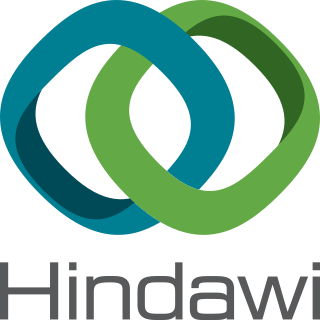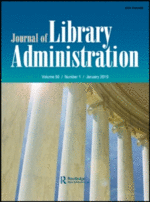
JSTOR is a digital library of academic journals, books, and primary sources founded in 1994. Originally containing digitized back issues of academic journals, it now encompasses books and other primary sources as well as current issues of journals in the humanities and social sciences. It provides full-text searches of almost 2,000 journals. Most access is by subscription but some of the site is public domain, and open access content is available free of charge.

Open access (OA) is a set of principles and a range of practices through which research outputs are distributed online, free of access charges or other barriers. With open access strictly defined, or libre open access, barriers to copying or reuse are also reduced or removed by applying an open license for copyright.

Elsevier is a Dutch academic publishing company specializing in scientific, technical, and medical content. Its products include journals such as The Lancet, Cell, the ScienceDirect collection of electronic journals, Trends, the Current Opinion series, the online citation database Scopus, the SciVal tool for measuring research performance, the ClinicalKey search engine for clinicians, and the ClinicalPath evidence-based cancer care service. Elsevier's products and services include digital tools for data management, instruction, research analytics, and assessment. Elsevier is part of the RELX Group, known until 2015 as Reed Elsevier, a publicly-traded company. According to RELX reports, in 2022 Elsevier published more than 600,000 articles annually in over 2,800 journals; as of 2018 its archives contained over 17 million documents and 40,000 e-books, with over one billion annual downloads.
John Wiley & Sons, Inc., commonly known as Wiley, is an American multinational publishing company that focuses on academic publishing and instructional materials. The company was founded in 1807 and produces books, journals, and encyclopedias, in print and electronically, as well as online products and services, training materials, and educational materials for undergraduate, graduate, and continuing education students.

Aaron Hillel Swartz was an American computer programmer, entrepreneur, writer, political organizer, and Internet hacktivist. As a programmer, Swartz helped develop the web feed format RSS; the technical architecture for Creative Commons, an organization dedicated to creating copyright licenses; the website framework web.py; and the lightweight markup language format Markdown. Swartz was involved in the development of the social news aggregation website Reddit until he departed from the company in 2007. He is often credited as a martyr and a prodigy, and his work focused on civic awareness and activism.

Open Library is an online project intended to create "one web page for every book ever published". Created by Aaron Swartz, Brewster Kahle, Alexis Rossi, Anand Chitipothu, and Rebecca Malamud, Open Library is a project of the Internet Archive, a nonprofit organization. It has been funded in part by grants from the California State Library and the Kahle/Austin Foundation. Open Library provides online digital copies in multiple formats, created from images of many public domain, out-of-print, and in-print books.
The term serials crisis describes the problem of rising subscription costs of serial publications, especially scholarly journals, outpacing academic institutions' library budgets and limiting their ability to meet researchers' needs. The prices of these institutional or library subscriptions have been rising much faster than inflation for several decades, while the funds available to the libraries have remained static or have declined in real terms. As a result, academic and research libraries have regularly canceled serial subscriptions to accommodate price increases of the remaining subscriptions. The increased prices have also led to the increased popularity of shadow libraries.

Hindawi is a publisher of peer-reviewed, open access, scientific journals currently active in scientific, technical, and medical (STM) literature. It was founded in 1997 in Cairo, Egypt, and purchased in 2021 for $298 million by John Wiley & Sons, a large US-based publishing company.

PLOS One is a peer-reviewed open access mega journal published by the Public Library of Science (PLOS) since 2006. The journal covers primary research from any discipline within science and medicine. The Public Library of Science began in 2000 with an online petition initiative by Nobel Prize winner Harold Varmus, formerly director of the National Institutes of Health and at that time director of Memorial Sloan–Kettering Cancer Center; Patrick O. Brown, a biochemist at Stanford University; and Michael Eisen, a computational biologist at the University of California, Berkeley, and the Lawrence Berkeley National Laboratory.
Annual Reviews is an independent, non-profit academic publishing company based in San Mateo, California. As of 2021, it publishes 51 journals of review articles and Knowable Magazine, covering the fields of life, biomedical, physical, and social sciences. Review articles are usually "peer-invited" solicited submissions, often planned one to two years in advance, which go through a peer-review process. The organizational structure has three levels: a volunteer board of directors, editorial committees of experts for each journal, and paid employees.

Medical Hypotheses is a not-conventionally-peer-reviewed medical journal published by Elsevier. It was originally intended as a forum for unconventional ideas without the traditional filter of scientific peer review, "as long as are coherent and clearly expressed" in order to "foster the diversity and debate upon which the scientific process thrives." The publication of papers on AIDS denialism led to calls to remove it from PubMed, the United States National Library of Medicine online journal database. Following the AIDS papers controversy, Elsevier forced a change in the journal's leadership. In June 2010, Elsevier announced that "submitted manuscripts will be reviewed by the Editor and external reviewers to ensure their scientific merit".
Philosophers' Imprint is a refereed philosophy journal.
Scientific Research Publishing (SCIRP) is a predatory academic publisher of open-access electronic journals, conference proceedings, and scientific anthologies that are considered to be of questionable quality. As of December 2014, it offered 244 English-language open-access journals in the areas of science, technology, business, economy, and medicine.
Diversity and Distributions is a bimonthly peer-reviewed scientific journal on conservation biogeography. It was established in 1993 as Biodiversity Letters. The journal covers the applications of biogeographical principles, theories, and analyses to problems concerning the conservation of biodiversity. The editors-in-chief are K.C. Burns, Luca Santini, and Aibin Zhan, who took over from Janet Franklin in 2019. After over two decades as editor-in-chief, David M. Richardson stepped down from the role in December 2015. According to the Journal Citation Reports, the journal has a 2018 impact factor of 4.092, ranking it 2nd out of 37 journals in the category "Biodiversity Conservation" and 20th out of 134 journals in the category "Ecology".

eLife is a not-for-profit, peer-reviewed, open access, science publisher for the biomedical and life sciences. It was established at the end of 2012 by the Howard Hughes Medical Institute, Max Planck Society, and Wellcome Trust, following a workshop held in 2010 at the Janelia Farm Research Campus. Together, these organizations provided the initial funding to support the business and publishing operations. In 2016, the organizations committed US$26 million to continue publication of the journal.

In United States of America v. Aaron Swartz, Aaron Swartz, an American computer programmer, writer, political organizer and Internet activist, was prosecuted for multiple violations of the Computer Fraud and Abuse Act of 1986 (CFAA), after downloading academic journal articles through the MIT computer network from a source (JSTOR) for which he had an account as a Harvard research fellow. Facing trial and the possibility of imprisonment, Swartz committed suicide, and the case was consequently dismissed.

Predatory publishing, also write-only publishing or deceptive publishing, is an exploitative academic publishing business model that involves charging publication fees to authors while only superficially checking articles for quality and legitimacy, and without providing editorial and publishing services that legitimate academic journals provide, whether open access or not. The rejection rate of predatory journals is low, but seldom zero. The phenomenon of "open access predatory publishers" was first noticed by Jeffrey Beall, when he described "publishers that are ready to publish any article for payment". However, criticisms about the label "predatory" have been raised. A lengthy review of the controversy started by Beall appears in The Journal of Academic Librarianship.
Glossa: A Journal of General Linguistics is a peer-reviewed open access academic journal covering general linguistics. It was established in 2016. The journal is published by the Open Library of Humanities and the editor-in-chief is Johan Rooryck.
Algebraic Combinatorics is a peer-reviewed diamond open access mathematical journal specializing in the field of algebraic combinatorics. Established in 2018, the journal is published by the Centre Mersenne.
Chris Bourg is an American librarian, sociologist and former officer of the United States Army. She has been the director of Massachusetts Institute of Technology Libraries since 2015.











